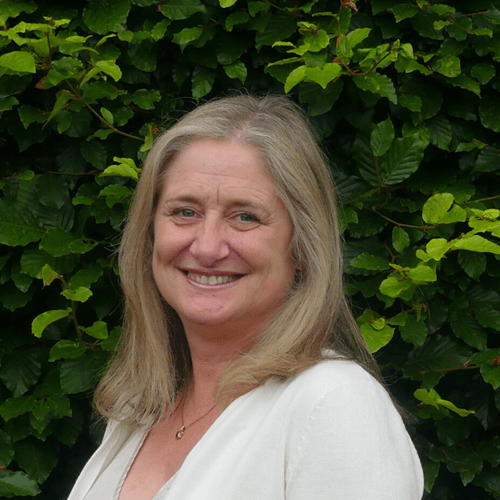Trainer Blog: Sustainability Measurement
26th June 2024
Trainer, Ann Stevenson, discusses the ever-changing landscape of sustainability measurement and reporting, and offers advice on how businesses should approach it.
Ann, you lead the Sustainability Measurement course – tell us about your background?

Having graduated as a chemical engineer I started my career as a probabilistic risk assessor consultant for the nuclear industry leading to working on supporting organisations on wider environmental issues.
Over the last three decades I’ve designed, led and delivered programmes of support for all sizes of businesses and public sector organisations to help embed sustainable practices.
Today, I lead support for businesses in Resource Futures on transitioning to a circular economy, by helping businesses understand and adopt circular business models, measure their environmental and social impacts, develop action plans and effective sustainability strategies.
Why do organisations need to take sustainability measurement seriously?
It’s back to the old adage of if you don’t measure you can’t manage. In my experience most businesses want to operate sustainably but can be slowed down by the worry of how best to do it? The whole point of measuring should be about giving confidence that the sustainability journey the business is on is robustly evidenced and positive for the planet, people and the business.
Effective and responsible sustainability measurement helps businesses understand where actions have positive impacts and not just negative impacts, and enables analysis, enhancement and continuous improvement. As businesses are coming under greater external pressure to demonstrate not only sustainability commitments, but show how they’re making it happen, they have to take measurement seriously.
Do sustainable practices really pay in business?
Of course they do! And it isn’t always about the short-term economic gains from reducing wasteful practices but how sustainable practices build longer term resilience for the business and protects the brand. As all businesses are part of complex value chains, global environmental and social issues pose risks for any business, of any size.
Embedding sustainable practices not only alleviates uncertainty of the impacts of climate change, human rights issues and access to material resources but can attract more purpose driven, skilled people to work in the business. And as more and more people want to be more sustainable in their everyday lives, there are opportunities to gain loyal like-minded customers.
Why or where do you see organisations struggling to get to grips with measuring their sustainability impact?
First of all, it can seem such a big thing to get started on. Where to start? What to measure? And then there’s the knee jerk response following the herd to be seen to be doing the right thing without having really understood how they measure the impacts of action. Understanding ‘materiality’[1] is a key first step that organisations might struggle with.
And it is fair to say it is an ever-changing landscape with lots of different choices for businesses. This includes which metrics to use, what to prioritise (as no one can deal with everything at once!), which standards and reporting regulations to navigate, and what tools and guidance are helpful.
How does the course that you lead help chemical and process engineers?
The sustainability measurement course will help chemical and process engineers navigate the complex world of sustainability measurement. By attending the course, they’ll go away with a good understanding of what sustainability measurement means in practice and why it is important. Even more importantly how they can support or lead responsible sustainability measurement and reporting in their organisation and avoid claims of greenwashing by thinking more holistically about the production and consumption ecosystem they work in.
What are the industries that chemical and process engineers work in that can impact sustainability?
All industries can have both positive and negative sustainability impacts. So given the diversity of sectors they work in, every chemical and process engineer has the capability to limit negative impacts and create more positive impacts. And of course, the impacts won’t be the same from one industry to the next or even from one business to another. But if every industry looks to adopt the principles of transitioning to a circular economy, underpinned by green chemistry and green engineering approaches, we have a chance to create a truly sustainable world. Fundamentally, this means designing out waste and pollution, circulating products and materials at their highest value for as long as possible and regenerating nature by ensuring materials and products are safe and increasingly from renewable sources.
What would your key take-home messages be to chemical engineers when looking at how they can impact sustainability?
Chemical engineers have the skills and knowledge to be instrumental in enabling sustainability. So be who they are. Great pragmatists, leaders and solution providers applying a systems thinking approach to embedding the fundamentals of green chemistry and green engineering.
[1] Materiality takes account of what is relevant and import to individual organisations in terms of how sustainability issues impact the organisation and how the activities of the organisation impact sustainable development in society and environment beyond their immediate operations.